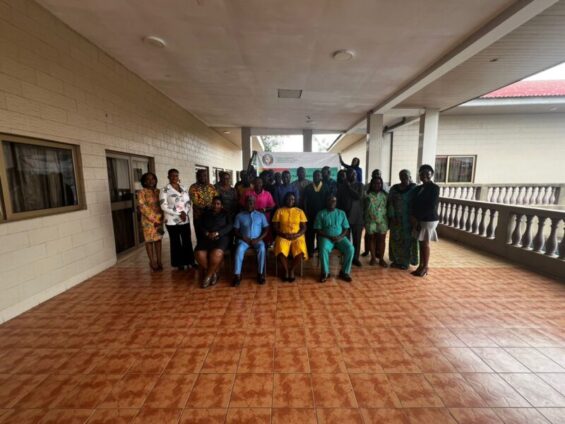To safeguard democratic values and promote inclusivity, the Economic Community of West African States (ECOWAS) Commission has engaged Ghanaian journalists in countering misinformation and disinformation.
This initiative particularly emphasizes addressing the threat of gendered disinformation and online violence against women in public life, a growing concern that undermines democracy and silences female voices in the political arena.
Understanding Gendered Disinformation
Esther Tawiah, Executive Director of the Gender Centre for Empowering Development (GenCED), defines gendered disinformation as a form of misogynistic abuse targeting women. It involves false, manipulative, or misleading gender-based narratives strategically used by state and non-state actors. The objective? To deter women from participating in the public sphere, silence opposition, and erode democratic processes.
Gendered disinformation often uses sexist language, sexualized content, character assassination, and conspiracy theories to discredit women.
Tawiah highlights that such tactics are designed to discourage women and other marginalized groups from expressing their political views, effectively undermining democracy. By spreading misleading information, perpetrators limit access to impartial, fact-based knowledge, skewing public opinion and weakening democratic representation.
A Direct Threat to Democracy and Participation
The journalists were briefed on the detrimental effects of gendered disinformation. This malicious strategy targets women, especially those in public domains, by using stereotypes, hyper-sexualization, and political targeting. The perpetrators often operate on social media platforms, amplifying their attacks through coordinated campaigns using doctored images, false media articles, and hashtags.
This concerted effort has a profound impact on women’s engagement in politics and media. Victims of gendered disinformation often experience emotional distress, cyber-misogyny, and threats that cause them to self-censor or disengage from public discourse entirely. This, in turn, limits the diversity of voices in political discussions and weakens democracy.
Countering the Threat: The Role of Journalism
The ECOWAS Commission emphasized the critical role journalists play in countering disinformation and promoting participatory democracy. Journalists were encouraged to adopt a more accountable approach, using fact-checking, verification, and counter-narratives to challenge disinformation. Executive Director of GENCED, Esther Tawiah outlined strategies such as mocking stereotypes, exposing hate speech, and calling out gendered disinformation as effective tools for fighting back.
Furthermore, the media’s portrayal of women in politics was highlighted as a key area for reform. Media organizations were urged to implement policies that ban gendered tropes, refrain from sensationalizing women’s appearances, and focus more on substantive issues rather than “women’s issues” alone. By upholding positive values and ethics in social media use, journalists can help create an inclusive and respectful online environment, allowing women to participate without fear of harassment or discrimination.
Promoting Online Safety and Inclusivity
One of the initiative's core messages was the need to create a safer online space for women. The ECOWAS Commission called for national task forces on gendered disinformation and policy reforms in newsrooms to address this growing challenge.
Latest Stories
-
Ablekuma North violence: Ghana’s democracy on a knife’s edge – Prof Kwesi Aning warns
7 minutes -
Paediatric Society of Ghana launches National Child Road Safety Campaign
12 minutes -
We need to tighten security ahead of future elections – NDC’s Nuong Faalong urges
13 minutes -
Ablekuma North violence ‘sad and unfortunate’ – Sulemana Braimah
14 minutes -
President of Concerned Small Scale Miners refutes allegations of intervening in Anti-Galamsey Taskforce operations
16 minutes -
Ablekuma North violence not an isolated incident – NDC’s Nuong Faalong
22 minutes -
Presidential jet grounded in France for 4 months amid serious technical faults
29 minutes -
Police Church near 37 Station on fire
55 minutes -
AMA to temporarily close Nkrumah Avenue for urgent repair works on July 11
1 hour -
Police probe isolated incidents of violence in Ablekuma North rerun
2 hours -
MiDA partners with IFC to boost agribusiness in Ghana
2 hours -
EPC contract central to gov’t’s mining agreement structure – Bright Simons
2 hours -
Government promised to reverse new hires of civil servants – IMF reveals
2 hours -
Poverty declined marginally in Ghana to 25.9% in 2024 – IMF
2 hours -
Ghana’s energy sector shortfall to reach $2.2bn by December 2025 – IMF
2 hours

